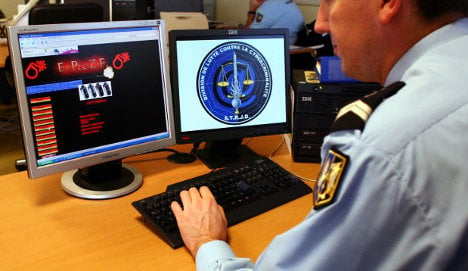Égalité, fraternité and securité.
France’s national motto may need a slight tweaking in the wake of the devastating terror attacks and PM Manuel Valls’s measures aimed at preventing a repeat of the shocking events of January 7th to 9th.
The main point of Valls’s counter-terrorism action plan is to employ nearly 3,000 people to help keep tabs on around 3,000 potentially dangerous individuals.
Some of those will be employed to do “cyber patrols” of social networking sites like Facebook which Valls says are frequently used by terrorists.
The prime minister also called on Internet service providers to comply with their legal obligations and reminded them of their moral responsibility.
But while a recent poll suggested that a slender majority of French people were prepared to sacrifice personal liberties for more security, others have expressed concern.
The head of France’s data privacy watchdog CNIL, Isabelle Falque-Pierrotin, told reporters on Tuesday that while she acknowledged the Paris terror attacks had “changed the game”, extra security cannot come at any cost.
“Security and liberty are two fundamental rights that go together,” she told a meeting of the Anglo-American Press Association in Paris. But when it comes to security “you can’t just do anything”, she said.
“If we reinforce the means of security then we must be given more guarantees” regarding their individual privacy and protection of data, she said.
“If we take a certain number of extra measures to fight terrorism, they must come with equal guarantees," Falque-Pierrotin added.
The head of CNIL, which has been on the front line in recent battles against Google regarding the “right to be forgotten” rules added that they will consider the measures announced by Valls, before declaring their position.
But she warned “there is no basis in French law for the mass, indiscriminate and systematic collection of citizens' data.”
However she believes her watchdog will have the support of the French public.
“I believe the French public want these guarantees,” she told The Local. “The mass protest after the Charlie Hebdo killings was a demonstration in favour of liberty.”
Coincidentally Snowden himself also raised concerns on Tuesday about the use of mass surveillance measures in France.
The Former spy turned whistleblower pointed out that French intelligence did not prevent the Paris attacks despite benefitting from the "most intrusive" surveillance laws because suspects are "buried under data".
"France passed one of the most intrusive, expansive surveillance laws in all of Europe last year and it didn't stop the attack," the former US intelligence contractor told Dutch state broadcaster NOS in an interview.
The French parliament passed a controversial law in December 2013 that facilitates police and intelligence agencies' access to telephone and Internet data in the fight against militants and organized crime.
"The problem with mass surveillance is that you're burying people under too much data," said Snowden.
There are also hindrances to the mass collecting and sharing of data at an EU level.
The European Parliament has blocked other measures due to concerns about civil liberties with the storing of troves of data about the EU's 500 million citizens.


 Please whitelist us to continue reading.
Please whitelist us to continue reading.
Member comments